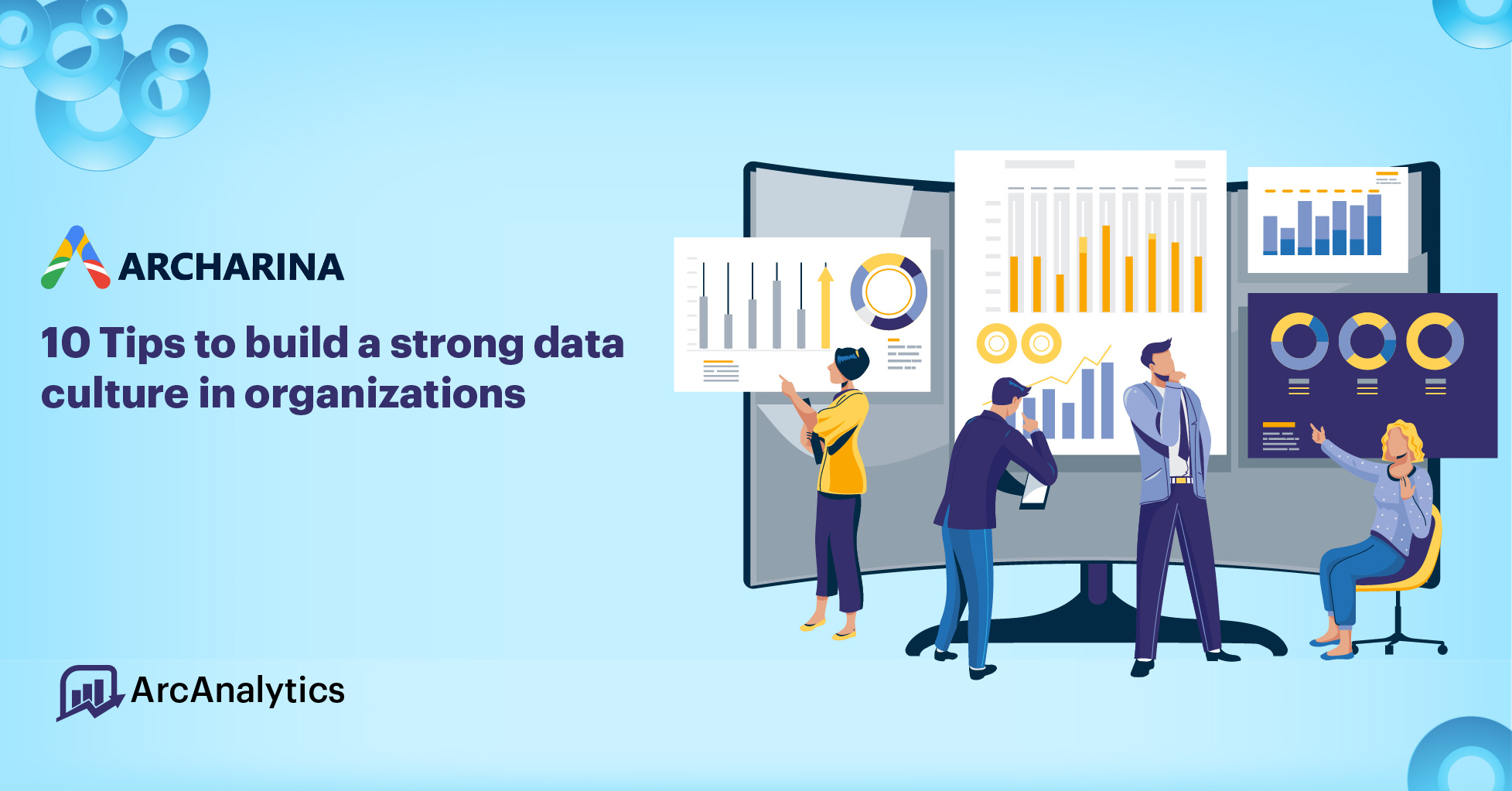
10 Tips to build a strong data culture in organizations
Data is the buzzword these days. Organizations across the spectrum invest in modern BI analytics tools for data-based decision-making. Unfortunately, it is not driving the change intended. The reason is the absence of a bottom to top push for data culture. It’s not about data-driven leadership; employees trust in data that can foster an authentic data culture. This article will highlight 10 insightful tips on building an organization with a strong data culture.
Leadership Commitment
Establish a strong commitment to data-driven decision-making at all levels of leadership. Leaders should prioritize and champion the use of data in decision-making processes and set an example by making data-driven choices themselves.
Clear Communication
Communicate the importance of data and analytics to all employees. Ensure that everyone understands the value of data and how it can contribute to the success of the organization. Use clear and simple language to explain complex data concepts to make it accessible to all.
Data Literacy Training
Provide training and resources to improve data literacy across the organization. Offer workshops, courses, or online resources to help employees understand basic data concepts, interpret data visualizations, and use data analysis tools effectively.
Empowerment and Collaboration
Encourage employees to actively participate in data initiatives and contribute their insights. Foster a collaborative environment where individuals feel empowered to explore data, ask questions, and share their findings. Encourage cross-functional collaboration to leverage diverse perspectives.
Data Quality and Governance
Establish data quality standards and governance processes to ensure data accuracy, consistency, and reliability. Create guidelines for data collection, storage, and maintenance to maintain data integrity and enhance trust in the data.
Accessible Data Infrastructure
Invest in a robust data infrastructure that enables easy access to relevant and reliable data. Implement data management systems that allow employees to access and analyze data efficiently, without unnecessary barriers or technical challenges.

Data Visualization and Reporting
Emphasize the importance of effective data visualization and reporting. Encourage the use of clear and visually appealing data dashboards and reports to communicate insights in a digestible manner. Provide training or resources to help employees present data effectively.
Celebrate Data Successes
Recognize and celebrate instances where data-driven decisions have had a positive impact on the organization. Share success stories, case studies, and examples of how data has improved outcomes, reinforcing the value of a data-driven culture.
Continuous Learning and Improvement
Encourage a culture of continuous learning and improvement when it comes to data. Foster a mindset of experimentation and learning from data-driven experiments. Encourage employees to seek feedback, iterate on their analyses, and continuously improve their data skills.
Measure and Track Progress
Establish key performance indicators (KPIs) to track the progress of your data culture initiatives. Monitor data adoption rates, data-driven decision-making metrics, and employee feedback to assess the effectiveness of your efforts. Use these insights to refine your data culture strategy over time.
Building a strong data culture takes time and effort, but with the right mindset, commitment, and support, organizations can create an environment where data is valued, utilized, and leveraged to drive meaningful business outcomes.
Leave a comment
Your email address will not be published. Required fields are marked *




